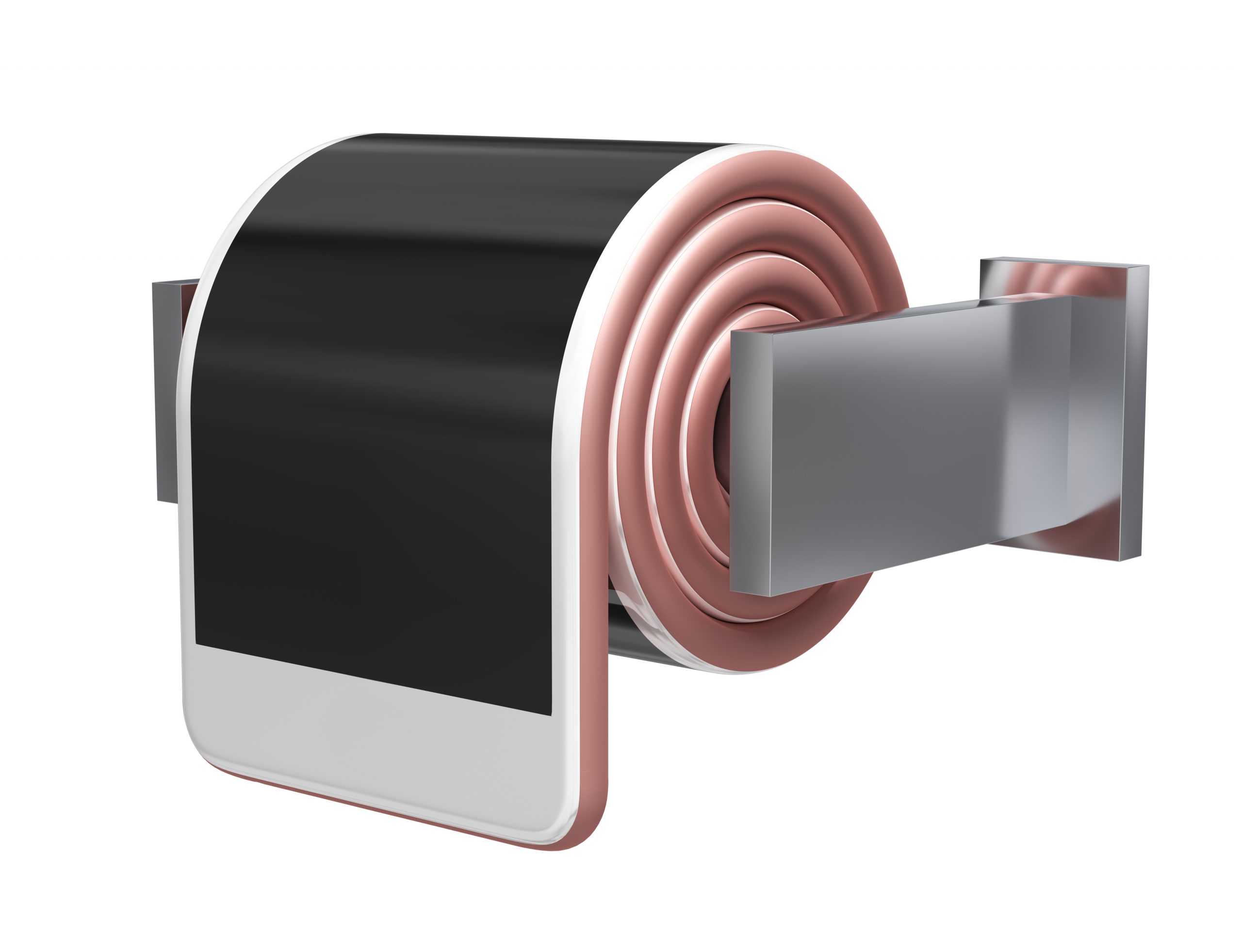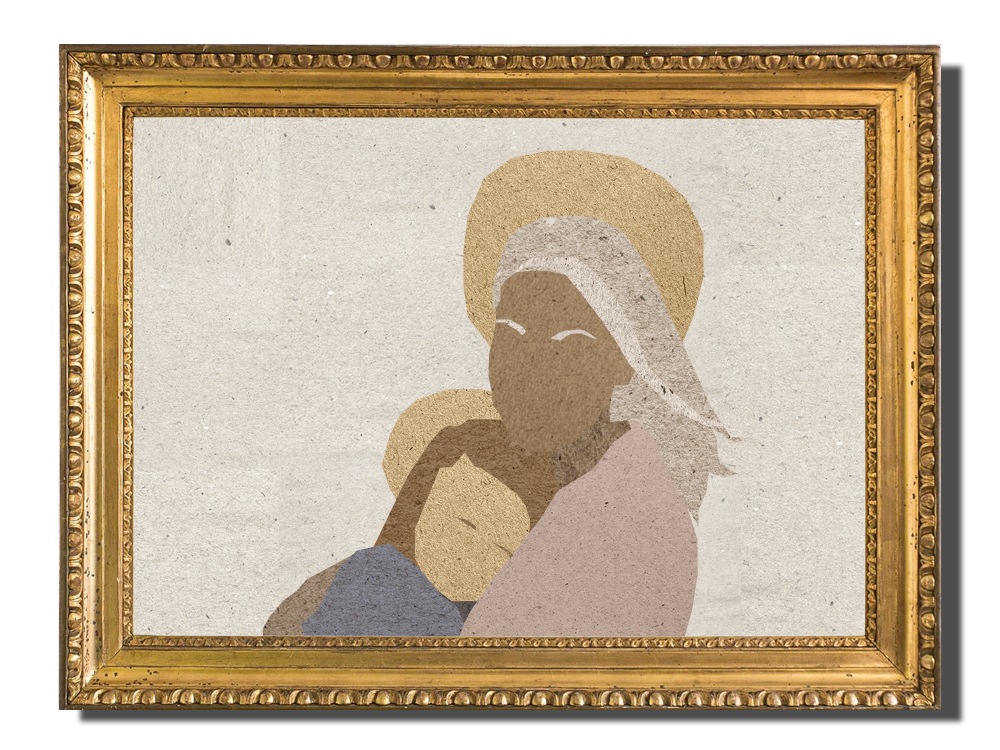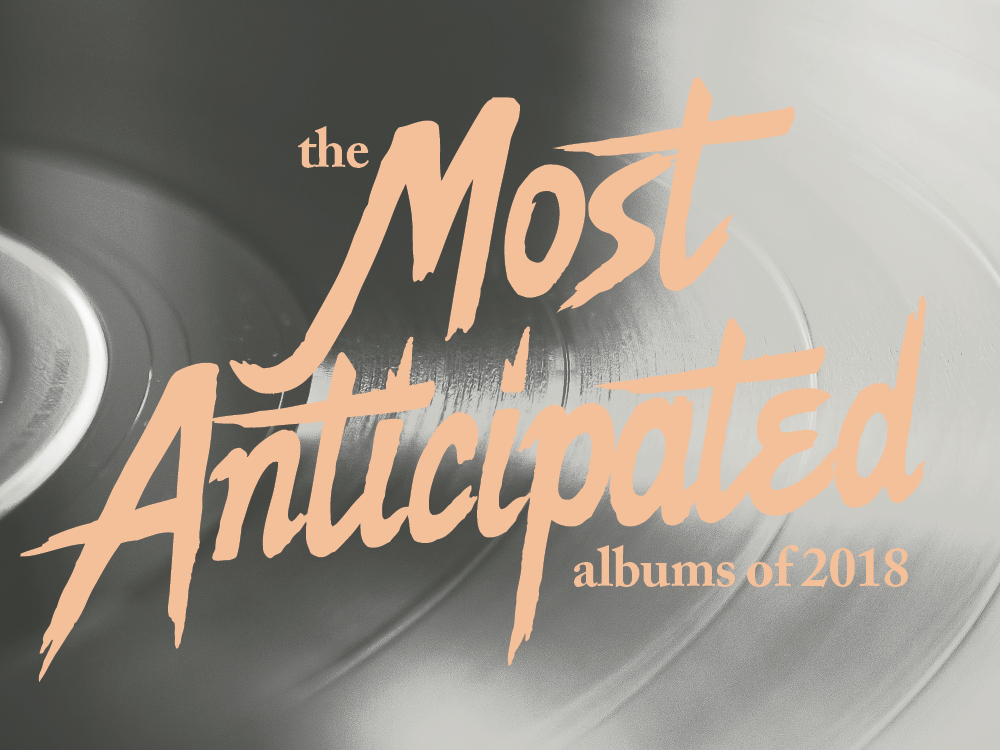Now that the year's over, it's time to go over a list of the 10 best covers to emerge from the various corners of the music world over the past 12 months. I mean, it's time for a lot of things, many of which are more important, per se, and say a lot more about the current situation that the arts face in what definitely feel like unusually trying times. This list didn't set out to elaborate on "What Music Said About 2017, An Absolute Hell-Toilet Of A Year" -- even if that vibe's pretty inescapable nonetheless and will probably seep into the hindsight of this list sure as it does in just about every other one. But it does stir up a question: If things are bad, what does it mean when we pick certain songs to bring back from the past and rework into the kind of shape meant to survive a harsher future?
Because let's face it: The best thing about a well-executed cover version is that it tries to separate a song from its rote familiarity, to liberate it from the prison of nostalgia and the divide of generational miscommunication, to show what an artist who exists outside that song can do when they find a way to make that song surround them. No other form of media can really simultaneously rewrite and reinforce history the same way -- pay homage and lay claim, destroy and rebuild, be then and now -- while still being just straightforwardly appealing if you don't know the first thing about its context. Of course, mileage varies widely, and there are bound to be some omissions; for one thing, I regret not being able to find some exceptional tributes to, say, Tom Petty or Chris Cornell this year. But that's the thing about covers: Everybody's got their own version of history to mess around with. Here's mine, in alphabetical order.
Classixx - "Right Now" (Van Halen Cover)
Even underneath the Sammy Hagar yelping, kinda-woke music video trappings, and Crystal Pepsi affiliations, "Right Now" is still a Van Halen song -- which means there are at least a couple riffs shamelessly huge enough to fill an airplane hangar. And when those riffs are molded around a form as joyful as big doofy arena rock but a touch more nuanced, like Classixx's rework of "Right Now" as burbling synth-house, it's a sort of carry-it-forward situation equivalent to the time VH themselves took Martha & the Vandellas' "Dancing In The Street" into a gleaming space-age coke-mirror disco-dub-funk wonderworld back in '82. In Classixx's hands, "Right Now" takes a moment or two for that notorious piano arpeggio to make itself known -- and when it is, it's a choppy, rhythmic sequence that focuses all the real oomph on a compact but deep bassline.
El Michels Affair - "Shaolin Brew" (Wu-Tang Clan Cover)
El Michels Affair have carved themselves an enviable niche in the NYC funk-throwback scene by forming a symbiotic relationship of sorts with the Wu-Tang Clan -- not only collaborating with various members of the group during live shows and the occasional studio recording, like the underrated 2006 Raekwon cut "PJs", but building a repertoire of instrumentals based on classic RZA beats. (This has occasionally resulted in the occasional ludicrous case of sample telephone, a'la A$AP Rocky's "Wavybone" lifting from their cover of "Heaven & Hell," resulting in a sample of a cover of a sample of a soul song.) 2009's Enter The 37th Chamber hit plenty of the classics, so for their second album of instrumental Wu-Tang covers, Return To The 37th Chamber, the band skewed a little more obscure this time around -- and with the Wu being omnipresent for most of the '90s, you can't dig much deeper than the St. Ides spot they recorded in '94. The Affair's version of "Shaolin Brew" stretches a minute's worth of wobbly, raw loops into a slow-burning banger nearly three times as long and even more dynamic. The piano recreation of the main melodic loop is hard enough, but the Affair gets a lot of mileage from that original hook's strength to the point where it's hard to pick a better moment: when the horns come in, or when the piano switches to a deep church organ. It's majestic drama built off a deep-cut classic, complete with a video that's one of the more striking recent statements about police violence -- so that's two acts now that've worked some major drama from the same malt liquor ad.
Kelela - "Like A Tattoo" (Sade Cover)
There are more academic and thinkpieceish ways to deconstruct the implications of futurist, eclectic strains of R&B being designated as "alt," and then there's the way Kelela did it. Take Me Apart came out on Warp Records and featured club-culture production from (among others) grime don Terror Danjah, Björk-simpatico abstractionist Arca, and Night Slugs maximalists like Bok Bok and Jam City, but it still does what all great R&B does, nod to tradition while using it as the framework for taking that tradition into a future not everybody can see quite yet. In a different generation, Kelela could've been Sade -- a massive star not in spite of but because of her soul-jazz structure finding ways of expression that met underground culture on her own terms, with the latter's '80s sophisti-pop finding a modern analogue in the last decade's worth of future bass. So of course Kelela's version of Sade's Love Deluxe cut "Like A Tattoo" sinks deeply into the material, especially as a solo piano piece where she's given all the room in the world for her voice to glide from smooth warmth to icy emphasis. In the end, it's the voice that matters more than who people think the voice should be marketed towards -- and the voice in question, in delivering that line "Hungry for life/And thirsty for the distant river," proves that the answer is anyone with a heart, more or less.
Lil Yachty Feat. Carly Rae Jepsen - "It Takes Two" (Rob Base & DJ EZ Rock Cover)
How's this for funny: the Rap Caviar/Soundcloud set gets damned constantly for its inability to live up to the gold standard of classic-era hip-hop, and then Lil Yachty actually shows up in a Target ad with Carly Rae Jepsen to take on that classic era by covering one of its biggest, poppiest, most shamelessly fun chart hits. Sure, it's not one of the most reverent exercises, but considering that "It Takes Two" too often gets overlooked by old heads who like to act as though late '80s rap was all Public Enemy and NWA-caliber hardcore, it's good to get a reminder of what a jam it is, even (or is that especially) when it's put through a glossy retrofitting via producer Mike WiLL Made It. Dial down your outrage if you have to en route to accepting that Yachty's no Rob Base (and CRJ, love her to death, is no Lyn Collins), and the goofy charm will wear down your defenses and win you over sooner or later. Hearing one of the biggest names in mumble-rap flow like he's bringing '88 back is, if nothing else, entertainingly weird -- and hey, maybe it'll give him another angle to his style down the line.
Priests - "Young Turks" (Rod Stewart Cover)
Rod Stewart was 36 years old when "Young Turks" peaked on the charts in late 1981 -- younger than Win Butler, Kurt Vile, and Avey Tare and Panda Bear are now. But it still seems like a song sung by someone much older, as though Rod hit 40 the moment he dropped "Da Ya Think I'm Sexy" and decided his best perspective on youth was from the outside, telling someone else's story. Priests are in a different situation entirely when it comes to sounding older than their years: they're the 2010s' answer to the question "do they still make 'em like Fugazi and Sleater-Kinney," a remember-the-nineties more substantial and necessary than your typical Frasier meme in that they're still compelled to ask "what's next?" (Check out frontwoman Katie Alice Greer championing Björk's vision of tomorrow if you need a clearer picture.) That makes the weight of their 'Young Turks" cover a bit more substantial, too: a song about the dreams of young people hoping "it's gotta get better than this" and figuring out their place in the world even as they bring new life into it is a perennial theme, but in this moment of the Precariat Millennial it hits hard hearing it performed by artists who sound wiser than their years yet young enough to resonate with the 10-somethings staring down the end of the world. On top of all that, Greer manages to nail the rare "optimistic scowl" delivery, and that combination of crumbling-infrastructure guitar and sour synth is just unnerving enough to make it all sound like the world is finally closing in on Patti and Billy. Hopefully that "time is on your side" isn't a misdirection.
Frankie Rose - "A Forest" (The Cure Cover)
An album like the goth-pop gem Cage Tropical is more than enough to give Frankie Rose a checkmark in 2017's win column, but if you've got that kind of momentum, sure: why not cover an entire Cure album? The sixth entry in Turntable Kitchen's year-long "Sounds Delicious" vinyl club, a series dedicated to full-length cover LPs by assorted artists like Yumi Zouma and Ben Gibbard, saw Rose tackle Seventeen Seconds alongside Jorge Elbrecht. And in fairness, they decided not to futz with the original article too much out of sheer reverence. "Since I already think it’s a perfect record, I tried not to reinterpret too much and stick to similar sounds as the original, but with a twist," she stated. Still, there's nothing wrong with faithfulness to the source material when your voice is still yours, and since Robert Smith's resonant wail is more or less inimitable, Rose's delivery plays to all her own strengths; a sense of the awestruck mixed with a luring command, wistfully vulnerable but far from helpless.
Ty Segall - "Every 1's A Winner" (Hot Chocolate Cover)
https://youtube.com/watch?v=XSvPXLIJYWo
Garage rock doesn't often approach disco on the latter genre's terms, though the beat still busts through on even the more raucous efforts -- check (previous Gotcha Covered entry) Alex Chilton's "Boogie Shoes" or the Gories' surf-shop knock-around of Machine's "There But For the Grace Of God" if you need a couple good ones. Add Ty Segall to the list, as this recently released early single from his upcoming 2018 release Freedom's Goblin proves: turns out the lo-fi garage-psych maniac who laced his best album with death-by-fuzz rock jam covers like Captain Beefheart's "Dropout Boogie", Pink Floyd's "Take Up Thy Stethoscope And Walk", and The Equals' "Diversion" can riff his way through Hot Chocolate just as grimily, and without sacrificing the original's slink. Sure, it sounds a fair amount sleazier, but between the way he pulls off that falsetto (especially on the delivery of the chorus's "satisfyyyyyy") and the rusty-jointed jankiness of its concluding guitar solo, it's the kind of sleaze that comes with a nice contact high.
Weyes Blood - "Everybody's Talkin'" (Fred Neil Cover)
Fred Neil can never get enough due: despite mentoring an entire generation of folk-rock singer-songwriters, having a particularly good if brief peak with the '65/'66 two-fer Bleecker & MacDougal and Fred Neil, and gradually drifting away from the music world in the '70s to focus on dolphin conservation, he's still best-known for a song made famous by somebody else. That the somebody else in question was Harry Nilsson, who himself is maybe best remembered for a cover version despite being one of the most distinctive songwriter-composers of the '60s and '70s, is its own tangled set of ironies, but for now, let's just focus on what Weyes Blood does with a song dozens of others have put their own stamp on. A B-side to her cover of Soft Machine's "A Certain Kind," her "Everybody's Talkin'" has the initial feel of one of those cover-as-experiment deals: no famous guitar picking figure, no deceptively upbeat tempo, no country-folk undertones, just a hazy organ drone cut through with the occasional glimmering chord or two that gradually blooms into a quasi-orchestral ambient hum. All that's left, fortunately, is the mournful homesickness, which Natalie Mering wrings every last drop of maudlin-free emotion from.
Bill Withers - "(You’ve Been Quite A Doll) Raggedy Ann" (Little Jimmy Dickens Cover)
I don't know if anyone expected Bill Withers to come out of retirement as a singer for the first time in over 30 years, but I'm positive nobody would've guessed how he would've come out of retirement: by appearing on a tribute album, The Rhinestone Hillbilly, dedicated to novelty country singer Little Jimmy Dickens. The choice of artist might not be that surprising after the fact; Dickens' hometown of Bolt, West Virginia is less than 14 miles from Withers' birthplace of Slab Fork, and both singers spent formative years in the town of Beckley. But the performance is startling, as the man with one of the most resonant, richest voices in all of soul music history performs what is essentially a spoken-word monologue. It's even more striking when you compare it to the melodramatic, broken heart of Dickens' almost Grand Ole Operatic performance. Over little more than a drum machine and a thumb piano, Withers sounds positively bemused; sentimental, sure, and wistful, building to the heartache of the line about how "I wanna thank you again, Raggedy Ann, for helping me raise her after her mama died," but grateful and happy in reflection where Dickens was choked up.
Jamila Woods - "Killing In The Name Of/Smells Like Teen Spirit" (Rage Against The Machine/Nirvana Cover)
Two angles of early '90s aggression -- one a decrying of institutional brutality, the other an ambivalent defense mechanism against being easily pinpointed and sold to -- pulled (mostly) clear of their alt-rock trappings and rendered into the sort of smoothness that doesn't necessarily denote stuffy politeness? Sometimes you don't need to scream over loud serrated guitars to be angry. Sometimes you just have to pluck at the tension underneath until you're on edge waiting for it all to snap. That it dissolves instead? Maybe there really is such a thing as meditative catharsis.






